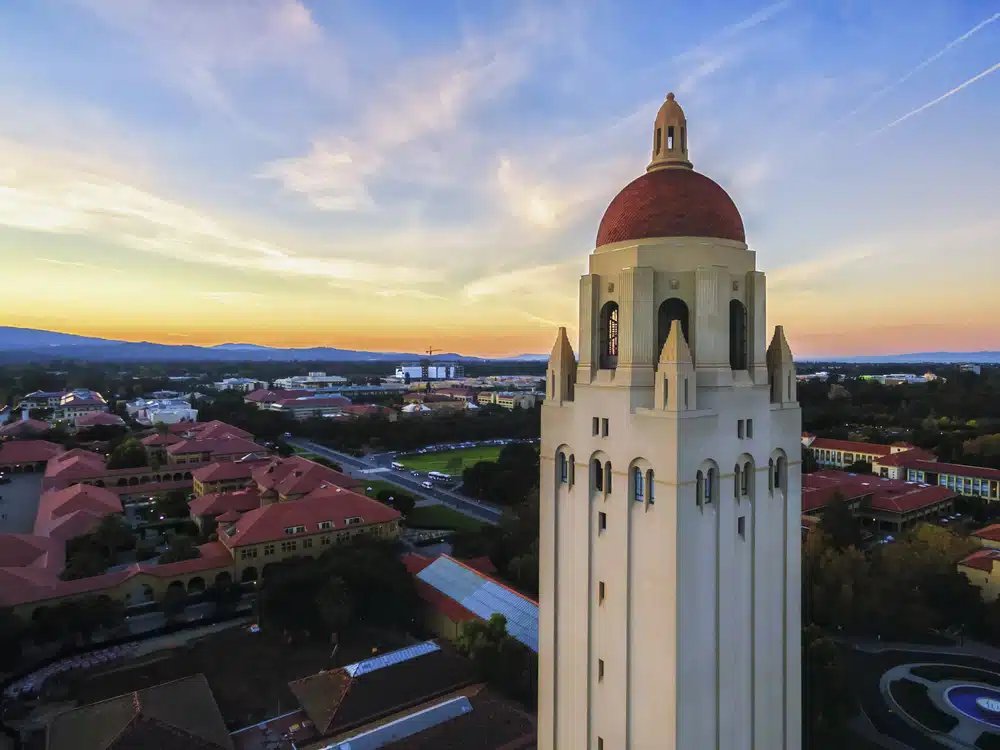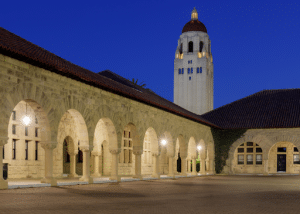How to Choose the Right Major at Stanford
Choosing the right major is one of the most critical decisions you will make in your academic career. Your choice significantly shapes your Stanford journey, affecting the classes you take, the peers you interact with, and the opportunities you have for research or creative work. This article aims to provide you with a guide for navigating this significant decision.
Understanding Stanford’s Academic Structure
Selecting the perfect major requires a practical understanding of how universities like Stanford divide their academic offerings. Stanford University organizes its academic structure into seven schools, each encompassing a broad array of disciplines and departments.
When it comes to navigating Stanford’s academic landscape, it’s essential to familiarize yourself with the various schools and departments that make up the university’s educational framework. These institutions serve as the backbone of Stanford’s commitment to providing a comprehensive and diverse education to its students.
Overview of Stanford’s Schools and Departments
Stanford University boasts a rich academic ecosystem, with seven schools that cater to a wide range of interests and intellectual pursuits. These schools include the School of Humanities and Sciences, School of Engineering, School of Earth, Energy, and Environmental Sciences, Graduate School of Education, Law School, School of Medicine, and the Graduate School of Business.
The School of Humanities and Sciences is the largest school at Stanford, housing departments that cover a vast array of subjects, including English, history, philosophy, and psychology. This school serves as the intellectual hub for students interested in exploring the human experience through various lenses.
The School of Engineering, on the other hand, is renowned for its cutting-edge research and innovative approach to problem-solving. With departments dedicated to disciplines such as computer science, electrical engineering, and mechanical engineering, this school equips students with the skills and knowledge needed to tackle complex technological challenges.
For those passionate about the environment and sustainability, the School of Earth, Energy, and Environmental Sciences offers a range of departments focused on studying the Earth’s natural systems, energy resources, and environmental conservation. From geology to atmospheric science, students in this school gain a deep understanding of the planet and its interconnected systems.
The Graduate School of Education prepares future educators and researchers to address the evolving needs of the education system. Through its departments, such as Curriculum Studies and Teacher Education, this school equips students with the tools to shape the future of education and make a positive impact on learners of all ages.
Stanford’s Law School is renowned for its rigorous legal education and commitment to producing exceptional lawyers and legal scholars. With departments covering various aspects of law, including constitutional law, corporate law, and international law, this school prepares students for successful careers in the legal field.
The School of Medicine, as one of the top medical schools in the world, offers an extensive range of departments focused on medical research, patient care, and healthcare innovation. From biomedical informatics to neurology, students in this school are at the forefront of medical advancements and contribute to improving global health.
Lastly, the Graduate School of Business prepares aspiring business leaders through its departments, such as Finance and Marketing. With a focus on entrepreneurship, leadership, and strategic thinking, this school equips students with the skills needed to excel in the ever-changing business landscape.
Interdisciplinary Programs at Stanford
Alongside these formal departments and schools, Stanford University encourages interdisciplinary learning through a range of interdisciplinary programs. These programs provide students with the opportunity to explore subjects that transcend traditional disciplinary boundaries and foster a holistic approach to education.
One such program is symbolic systems, which combines elements of computer science, linguistics, philosophy, and cognitive science. Students in this program delve into the study of symbols, language, and intelligence, exploring the intersection of these disciplines to gain a deeper understanding of human cognition and artificial intelligence.
Another interdisciplinary program at Stanford is international relations, which bridges the fields of political science, economics, history, and sociology. This program equips students with the knowledge and skills to analyze global issues, understand international dynamics, and contribute to the development of effective diplomatic strategies.
Furthermore, Stanford offers a program in human biology, which integrates biology, anthropology, psychology, and public health. This interdisciplinary approach allows students to explore the complexities of human health and well-being from multiple perspectives, preparing them for careers in medicine, research, and public health.
By promoting interdisciplinary programs, Stanford University fosters a culture of intellectual synergy, encouraging students to think critically, explore diverse perspectives, and collaborate across disciplines. This approach to education prepares students to tackle complex real-world challenges and make meaningful contributions to society.
Identifying Your Interests and Strengths
Before deciding on a major, it’s crucial to introspect about your interests, strengths, and overall academic and career objectives. Stanford provides several resources to assist students in this endeavor.
When it comes to choosing a major, it’s important to take the time to truly understand yourself and what you are passionate about. Self-reflection is a key component of this process, as it allows you to delve deep into your interests and strengths. By understanding what makes you tick, you can make an informed decision about your academic path.
Stanford recognizes the significance of self-assessment tools in helping students identify their strengths and areas of interest. These tools can be impactful in providing insights into your aptitudes and skills. For example, the Skills Profiler is a valuable instrument that can help you understand the areas where you excel. Additionally, StrengthsFinder can provide you with a comprehensive understanding of your unique strengths, allowing you to leverage them in your academic and career pursuits.
However, self-assessment tools are not the only resources available to Stanford students. The university also acknowledges the role of elective courses in the process of discovering interests. With its vast course offerings, Stanford allows students to explore a wide range of subjects and disciplines. This flexibility enables students to dip their toes into various fields, helping them uncover potential major interests.
Elective courses provide an opportunity for students to step outside their comfort zones and try something new. Whether it’s a course in art history, computer science, or philosophy, each elective course offers a unique perspective and a chance to discover new passions. By taking a variety of courses early in your studies, you can strategically navigate through different subjects, gaining a better understanding of your preferences and what truly excites you.
Furthermore, elective courses not only expose you to different fields of study but also provide a platform for interdisciplinary exploration. You may find that your interests lie at the intersection of multiple disciplines, and by taking a diverse range of courses, you can uncover these hidden connections.
Ultimately, the process of identifying your interests and strengths is a personal journey. It requires self-reflection, exploration, and a willingness to step outside your comfort zone. Stanford’s resources, such as self-assessment tools and elective courses, are designed to support you in this process, providing you with the tools and opportunities to make an informed decision about your academic path.
Exploring Different Majors
Once you have a sense of your interests and strengths, it’s time to delve into the specifics of potential majors.
Choosing a major is an exciting and important decision that will shape your academic journey and, potentially, your future career. It’s essential to explore different fields of study to find the one that aligns with your passions and goals. In this expanded version, we will take a closer look at some of the major categories available at Stanford University.
Overview of Humanities Majors
Humanities majors at Stanford offer a diverse range of study areas, including literature, philosophy, history, and languages, among others. These majors often emphasize critical thinking, communication, and the ability to understand complex social structures.
Studying literature allows you to dive into the world of words, exploring the works of renowned authors and analyzing their impact on society. Philosophy, on the other hand, challenges you to question the fundamental aspects of existence and ponder life’s biggest mysteries. If you have a passion for the past, history majors will take you on a journey through time, unraveling the events that shaped our world. For those with a love for languages, majors in this field offer the opportunity to immerse yourself in different cultures and gain a deeper understanding of global communication.
Overview of Science and Engineering Majors
If your interests lean towards quantifiable facts, scientific processes, or designing and building things, majors in the Sciences or Engineering might appeal to you. From Physics to Computer Science, and Environmental Engineering to Biomedical Engineering, Stanford offers a variety of programs in these fields.
Physics majors explore the fundamental laws of nature, unraveling the mysteries of the universe and discovering how everything works. Computer Science majors delve into the world of algorithms and programming, equipping themselves with the skills to develop innovative software and technology. Environmental Engineering majors focus on finding sustainable solutions to protect our planet, while Biomedical Engineering majors combine their passion for science and medicine to create groundbreaking advancements in healthcare.
Overview of Social Sciences Majors
For students interested in societal processes and human behavior, Social Sciences provide several major options. Disciplines such as Economics, Sociology, Psychology, and Political Science can offer insightful perspectives on various human concerns.
Economics majors analyze the production, distribution, and consumption of goods and services, exploring the intricate workings of markets and economies. Sociology majors study social interactions and institutions, examining how individuals and groups shape society. Psychology majors delve into the complexities of the human mind, exploring behavior, cognition, and emotion. Political Science majors analyze political systems and policies, seeking to understand the dynamics of power and governance.
As you can see, Stanford University offers a wide array of majors across different disciplines. It’s important to take the time to explore these options, attend information sessions, and talk to current students and professors to gain a deeper understanding of each field. Remember, your major is not just a label but a pathway to knowledge and personal growth.
The Importance of Career Goals in Choosing a Major
Your future career goals should play a significant role in choosing your major, as the knowledge and skills you acquire in your major can shape your professional future.
When it comes to selecting a major, it is essential to align your choice with your long-term career aspirations. By considering your future career paths, you can ensure that the major you choose provides a solid foundation for your desired profession. For instance, if you aspire to be a doctor, a major in Human Biology would not only provide you with a comprehensive understanding of the human body but also equip you with the necessary knowledge to excel in medical school and beyond. On the other hand, if you envision a career in finance, a major in Economics could provide you with the analytical and quantitative skills required to thrive in the financial industry.
While choosing a major solely based on your career goals is important, it is equally crucial to explore other factors that may influence your decision. Internships and research opportunities can be invaluable in helping you define your career path. These experiences allow you to gain hands-on experience in a specific field, giving you a glimpse into the day-to-day realities of your desired profession. Whether it’s an internship at a law firm, a research position in a laboratory, or a volunteer opportunity at a non-profit organization, these experiences can provide valuable insights and help you confirm or reconsider your major choice.
Internships not only provide practical experience but also allow you to build a professional network. By working alongside professionals in your field of interest, you can establish connections that may prove beneficial in the future. These connections can lead to mentorship opportunities, job offers, or even recommendations for further education or training.
Research opportunities, on the other hand, allow you to delve deeper into a specific subject area and contribute to the advancement of knowledge in your field. Engaging in research can enhance your critical thinking skills, problem-solving abilities, and overall understanding of your chosen discipline. Additionally, research experience can serve as a distinguishing factor when applying for graduate programs or competitive job positions.
It is important to note that while aligning your major with your future career goals is crucial, it is also essential to keep an open mind and be willing to explore different paths. Sometimes, unexpected opportunities or newfound interests may lead you down a different career trajectory. Embracing flexibility and adaptability can be key in navigating the ever-evolving job market and finding fulfillment in your professional life.
Seeking Guidance in Your Decision
Choosing a major is a significant decision that should not be made in isolation. To make an informed choice, it helps to seek guidance from different sources.
Utilizing Academic Advisors
Academic advisors at Stanford are valuable sources of advice. They can help clarify academic requirements, recommend courses, and connect you with opportunities. In addition, they offer invaluable insights based on their experience advising hundreds of students.
Peer and Alumni Insights
Lastly, don’t overlook the value of insights from your peers and alumni. Their experiences can give you a practical sense of what a major is like and where it may lead. Be curious, ask questions, and make the most of these resources as you navigate your decision-making process.
The right major for you will tie together your interests, strengths, and career aspirations. Stanford offers myriad possibilities, so take your time, explore, and make a decision that will empower your learning journey.
How AdmissionSight Can Help You with College Admissions
AdmissionSight is a college consulting firm that provides personalized assistance to students throughout the college admissions process. Here are some ways that AdmissionSight can help you:
Admissions strategy: AdmissionSight can help you develop a strategic plan for your college application process. Our professional consultants can assist with identifying schools that are a good fit for your academic, extracurricular, and personal goals and help you plan and prioritize your application strategy.
Application review: AdmissionSight can review your application and provide feedback on how to improve it. We can offer suggestions on making your application stand out and highlighting your strengths and unique qualities.
Essay coaching: AdmissionSight can help you craft compelling essays that showcase your personality, goals, and achievements. We can guide you through the essay writing process and provide feedback on your drafts to help you refine your writing.
Interview preparation: AdmissionSight can provide interview coaching to help you feel confident and prepared for college interviews. Our experts can offer tips on how to present yourself professionally and how to answer common interview questions.
Extracurricular planning: AdmissionSight can help you plan and develop your extracurricular activities to make them more impactful and meaningful. We can suggest activities that align with your interests and goals and provide guidance on demonstrating your leadership and initiative.
Overall, AdmissionSight can provide valuable guidance and support throughout the college admissions process to help you maximize your chances of getting accepted into the college of your choice.
With a high success rate of over 75%, we have built a strong network in the past decade. Book an initial consultation today, free of charge!









































